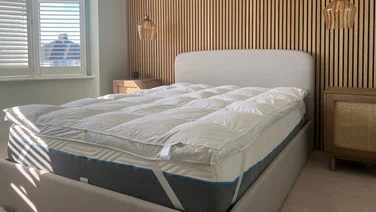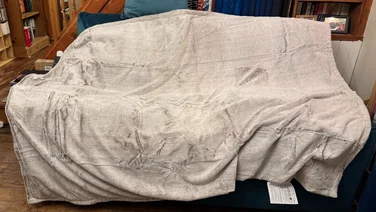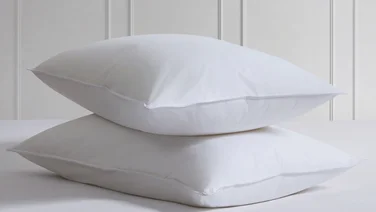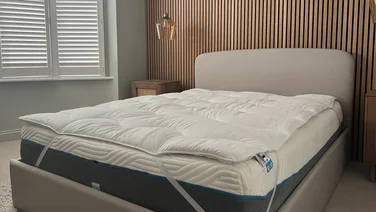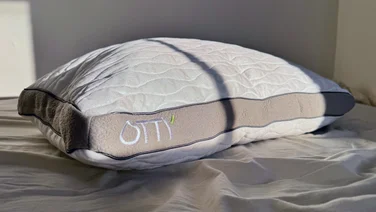To help us provide you with free impartial advice, we may earn a commission if you buy through links on our site. Learn more
- Cyber Monday deal update: Get £120 off the Leesa Mattress until 21 December
- The best sleep tips: Great recommendations for a good nights sleep
- Move before you snooze
- Pick your scent
- Ditch the devices
- Fill up on fruit
- Keep your cool
- Fade to black
- Turn up the (background) noise
- Be mindful of winding down
- Try a new mattress
- Featured mattress: The Leesa mattress

Sleep forms a vital part of a healthy lifestyle. In fact, getting quality sleep is essential for maintaining basic cognitive skills such as listening, communicating and memory. If youre not fully rested, you cant be fully functional.
While its easy to understand the benefits of a good nights sleep it can be hard to drift off into that restful state to reap the rewards – even if your room is equipped with the best bed and mattress. But there are some simple steps that you can take to improve your sleep quality. We got in touch with Professor Paul Gringras, a sleep medicine clinician, academic and Leesas scientific advisor, to tap him up for helpful tips on how to sleep better.
According to Professor Gringras: We should think of sleep as a free medicine, that can be taken without side effects at every age,” and that even small improvements in sleep can help abstract thinking, mood and aspects of learning and memory. Read on for his top sleep tips based on cutting-edge research and years working on challenging clinical cases in the areas of insomnia, sleep apnoea and narcolepsy.
Cyber Monday deal update: Get £120 off the Leesa Mattress until 21 December
Leesa has launched a December discount code that gets you £120 off any mattress bought online until 11:59 on Friday 21 December. To apply the discount you’ll need to add DECEMBER120 into the ‘discount’ field at checkout. The offer applies to all mattress sizes, from singles right up to Super Kings, and delivery is free too. And you’ll have some time to figure out if the mattress is for you with the company’s 100-night, risk-free trial policy, valid across all purchases.
The best sleep tips: Great recommendations for a good nights sleep
Move before you snooze
Exercise can improve sleep quality, according to Professor Gringras, but the timing and intensity of a workout can make a big difference. Exercising in the morning is unlikely to be effective when it comes to improving sleep, and squeezing in activity too close to bedtime could keep you up for longer. For the best results, he recommends taking 20 to 30 minutes of moderate exercise between 4 and 7pm.
Pick your scent
Bergamot (used in Earl Grey tea) and lavender have both been shown to promote sleep and aid relaxation. Rather than dousing your pillows (or yourself) in the scent, create a subtle bouquet by putting a few drops of essential oil on some cotton wool and placing it in a glass somewhere in your bedroom.
Ditch the devices
Exposure to blue light sources (such as TVs, tablets and smartphones) reduces the brains ability to produce melatonin, which can make it harder to fall asleep. The best advice is to leave electronics outside the bedroom or turn them off at least an hour before bedtime. If you cant tear yourself away from your tech, wearing blue blocker orange-tinted glasses can help, as can apps such as Blue Light (available from Google Play) and F.lux (available from the Microsoft Store) that alter the colours emitted by your devices.
Fill up on fruit
Dubbed the hormone of darkness for its sleep-enhancing properties, melatonin has proven to be an effective sleep aid. Rather than reaching for a supplement, Professor Gringas suggests tucking into tropical fruit (pineapples and bananas specifically) in the evening to increase your levels of this natural hormone.
Keep your cool
Aim to keep your bedroom at a thermally neutral temperature so that your body doesnt have to regulate by sweating or shivering. A room temperature between 18.5 and 20°C is ideal. On hot nights, switch to cotton bedding and cotton pyjamas; both can help draw sweat away from the body.
Fade to black
Invest in blackout blinds or quality curtains with a decent lining to block out light that might otherwise wake you up too early in the summer months.
Turn up the (background) noise
A constant background noise can actually help rather than hinder sleep. A constant and calming hum can drown out intermittent noises and promote positive associations with sleep. The more predictable and monotonous the better; try a talk radio show or some classical music. Or try listening to pink noise (a steady mix of high and low frequencies), which is said to be less irritating than white noise and more effective at promoting sleep.
Be mindful of winding down
It sounds obvious, but making sure youre relaxed at bedtime can help to encourage sleep. Professor Gringras recommends trying a couple of proven relaxation techniques to help you drift off. Progressive muscle relaxation (tensing your muscles as tightly as possible and then completely relaxing them from head to toe) can be really effective. So can practicing the art of mindfulness, which encourages you to focus on the here and now and the detailed nuances of your breathing.
Try a new mattress
An old mattress or the wrong type of mattress can both affect your sleep so if youre uncomfortable or not sleeping well, it could be worth trying out a new one. There are plenty of companies that offer 100-night risk-free trials so you can test one out properly in the comfort of your own home before parting with your cash.
Featured mattress: The Leesa mattress
The Leesa mattress is made from three foam layers of varying density: a 15cm base layer for core support and durability; a 5cm middle layer of pressure-relieving memory foam; and a 5cm responsive comfort top layer made from cooling Avena foam to help deliver a cooler nights sleep and enough bounce for freedom of movement. This unique combination is designed to adapt to your shape, providing support and comfort for bodies of all sizes and sleepers of all styles.
The Leesa mattress is made in the UK, and is delivered direct to your door, compressed in an easy-to-manoeuvre box. It currently has over 13,000 5-star user reviews and has been awarded a string of accreditations.
Leesa offers a 100-night risk-free trial on all purchases, so you can try before you fully commit to buy. And you also get a reassuring ten-year warranty.
Leesa operates a One-Ten social impact programme, which donates one mattress for every ten sold, supporting organisations serving homeless and at-risk men, women and children.
Find out more about the Leesa mattress and the One-Ten programme at Leesa.co.uk
Disclaimer: This advice reflects Professor Gringras opinions based on his understanding of the sleep medicine field at the moment. But please bear in mind that all medical research changes rapidly, and research can become out of date. Also whilst the information is as accurate as possible right now, it is only general advice and should not be used as a substitute for individual advice you might receive from medical professionals.


